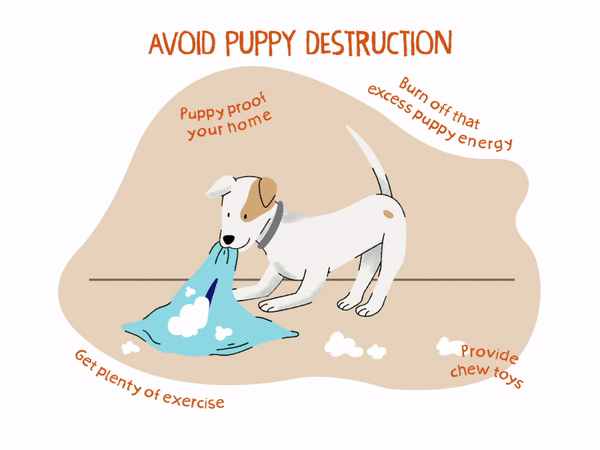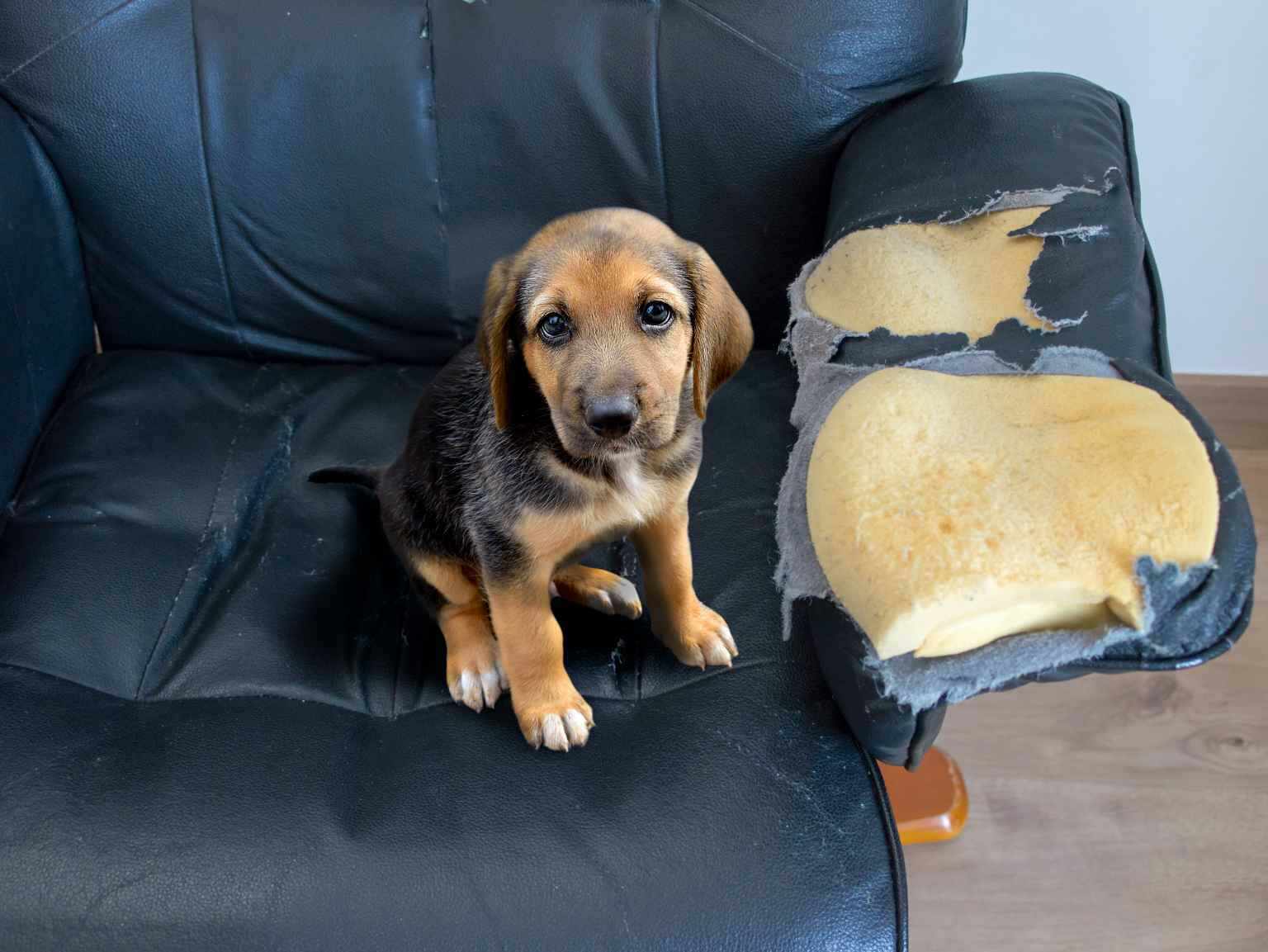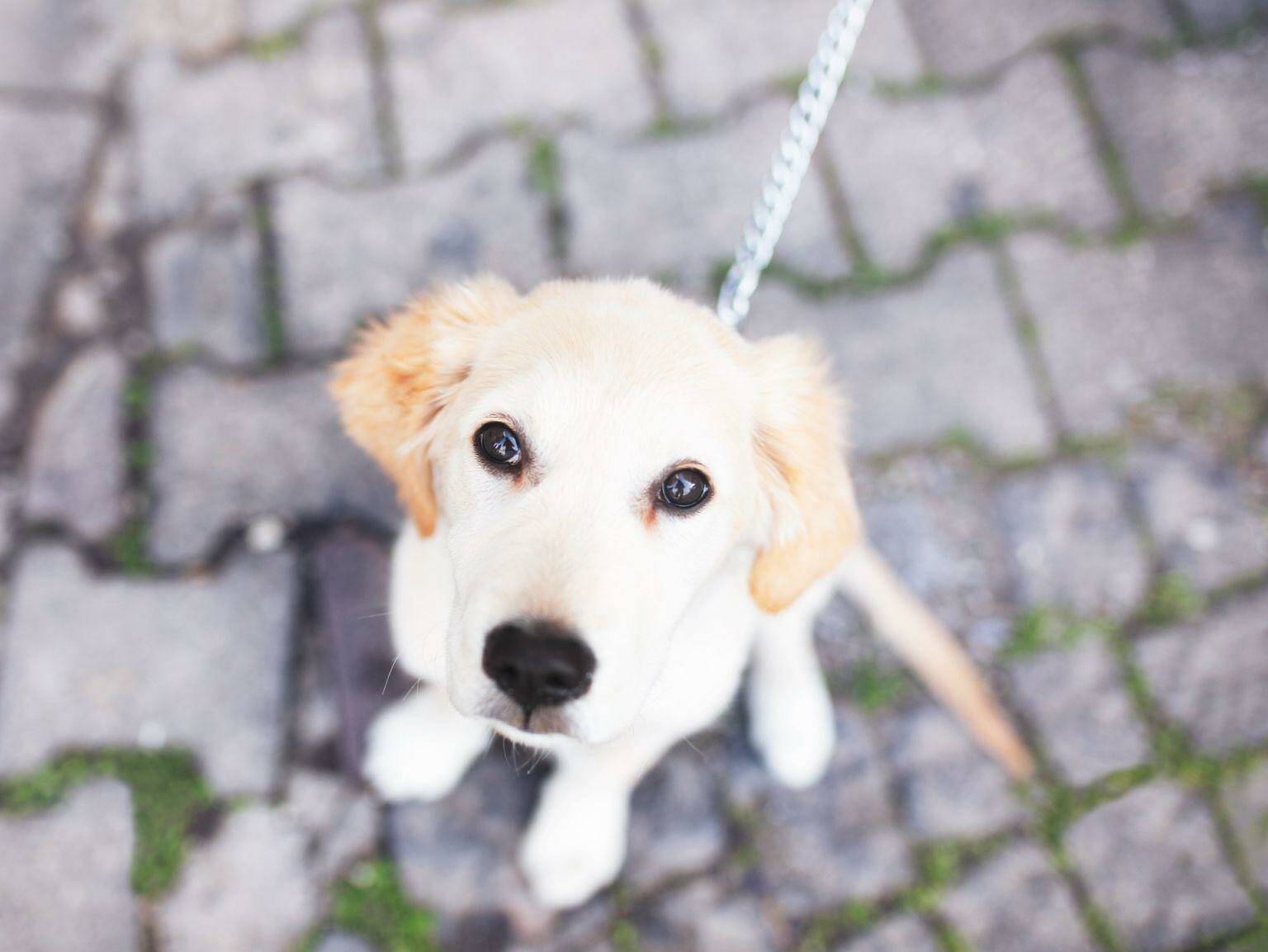what to do about bad puppy behavior
Puppy bad behavior can happen to even the nicest pup
Inside every shoe-eating, barking-at-everything pup, there’s a well-behaved puppyBFF just waiting to come out. Want to encourage less chewing or barking? Hoping for more poops and piddles outside and fewer indoors? Want to discourage aggression like lunging and nipping? Here are ways to help bring out the best in your little doggy friend.
Here‘s how to tackle some of the most common puppy behavior complaints.

Puppy problems #1: Bark, bark, bark, bark, bark
The first step in dealing with too much barking is to identify the trigger — that is, what’s making your puppy bark. Maybe it’s a knock at the door, something passing by outside, or even mealtime. Once you know each trigger, you can teach your pup that really, no, they don’t need to talk about it. Here are some ways to preserve the peace:
- Start with basic commands like “sit” and “stay,” and move on to “quiet.” See more about obedience training
- Keep your puppy away from windows (where unexpected stuff moves a lot)
- Put your pup in another room when preparing their food
- If you can, distract your puppy with something calm before the trigger
- Provide your pup with extra environmental enrichment like toys
- Don’t punish your puppy, but reward the quiet behavior you want to see
If you suspect that your pup is barking or destroying property due to anxiety, not enthusiasm, talk to your veterinary team for specific help and advice.
Puppy problems #2: Ripping things up
Does your pup think your new shoes are a chew toy? Once you know what’s triggering your pup to damage things, you can take the appropriate action. This includes:
- Keeping your pup in their crate or other safe, small area when you can’t supervise them
- Replacing items you don't want them to chew with an appropriate chew toy
- Storing tempting items out of reach until your pup is properly trained

Puppy problems #3: Jumping on people
Jumping is a sign of lovable enthusiasm for new environments and people, but it’s also not terrific manners (weirdly, not everyone enjoys being pawed by a pup). Here are some helpful ways to keep your pup from jumping on people:
- Use basic commands like “sit” and “stay” when encountering new people
- Put the people in charge, so they initiate contact only after your pup is calm
- Provide environmental enrichment like toys or exercise
- Keep your pup in a crate or another room until things are settled, and then let people say hi to your pup
Puppy problems #4: Begging is not good behavior
They’re so cute! But giving in when your pup begs for food will only increase the problem and may lead to pet obesity. Prevention is the easiest method — just never reward their begging to begin with. If that opportunity has already passed, put your pup in another room during mealtimes, and make sure all members of the household stop rewarding them when they beg. Eventually, the behavior should taper off as they learn that their big puppy-dog eyes are not going to get them yummy table scraps.

Puppy problems #5: Potty training (maybe the biggest of normal puppy behavior problems!)
Having pup poop and pee in your house isn’t fun. Here are a few methods that may help with your puppy potty training.
- Use the same area for potty training every time
- Reward your pup after a successful “go”
- Don’t discipline your pup if they make a mistake, but focus on rewards when they poop or pee correctly
- Pick up your puppy and move them to the potty area if you catch them in the act
- Try to keep your pup confined when you can’t directly supervise them
If you and pup are having consistent potty training issues, there may be an underlying medical condition. If you suspect a problem, please reach out to your veterinary team.
Puppy problems #6: When puppies bite, that’s aggressive behavior (nip this puppy behavior problem early!)
If you’re seeing aggressive behavior in your puppy, like growling, biting, food guarding, and more, you need to address it early. Don’t let the behavior become ingrained. It’s worth reaching out to your veterinary team to see if a health issue is causing a defensive or aggressive reaction, or to ask about animal behavior specialists in your area.

How Banfield can help
Talk to your veterinary team if you’re experiencing ongoing behavior issues. We can help you rule out or treat health conditions and may be able to refer you to more resources, like animal behavioralists, who can work with you on a positive training regimen for your pet.
 Mites and mange
Mites and mange Podcast - Not Just Fluff
Podcast - Not Just Fluff
